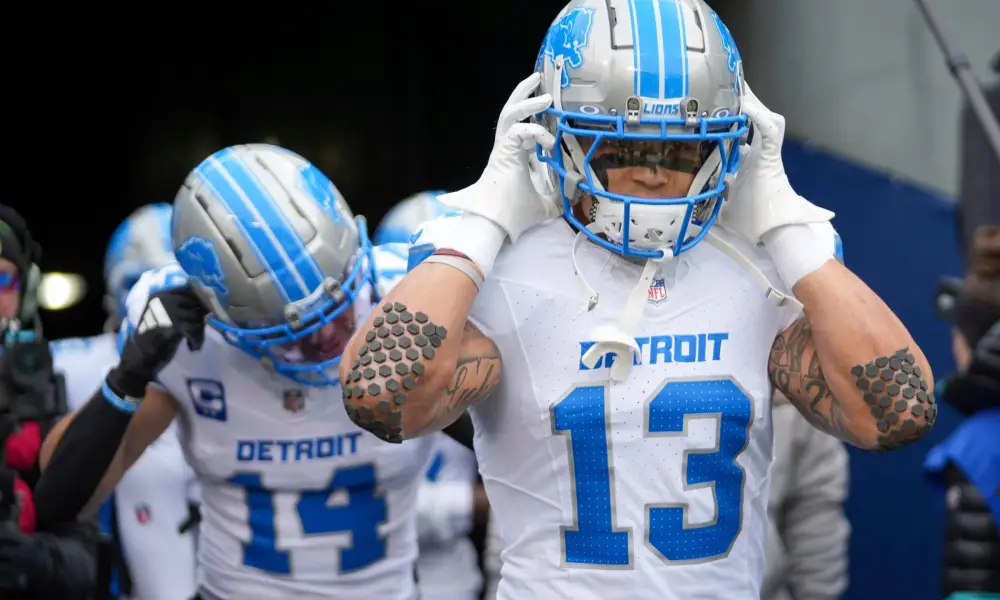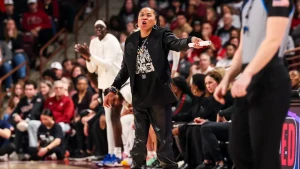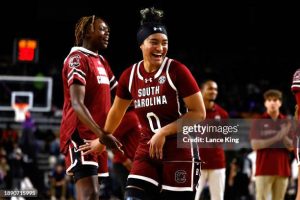
Breaking down the Lions restricted free agents in 2025
As the 2025 NFL offseason approaches, the Detroit Lions will face key decisions regarding their restricted free agents (RFAs). These RFAs have three years of NFL experience, and the Lions will need to assess their futures carefully as they seek to strengthen their roster and manage their salary cap.
In addition to the previously mentioned restricted free agents—Craig Reynolds, Anthony Pittman, and Shane Zylstra—the Lions may have other players on their radar. To understand their situation better, we need to dive deeper into these RFAs, considering not only their on-field contributions but also their potential impact on the team’s future.
1. Craig Reynolds, Running Back (RB):
Background: Reynolds has been a valuable contributor to the Lions’ running back room, particularly as a depth piece behind the team’s starters. He is not a high-profile player, but he has consistently shown his ability to step up when needed.
2024 Performance: Reynolds played a critical role during injury-plagued stretches for the Lions in 2024. He showcased his versatility as a runner and as a receiving threat out of the backfield. His ability to play on special teams also solidified his value to the team. In his role, Reynolds has been a reliable backup option, often coming in to provide a spark when the starting backs were unavailable or needed a breather.
Considerations for the Lions: The Lions may choose to offer Reynolds a restricted free-agent tender to ensure they keep him in the fold. The team values depth at the running back position, and Reynolds provides a solid, experienced backup. The Lions have a potent offense, and retaining Reynolds could help maintain that depth in case of injury. The decision ultimately comes down to the team’s salary cap and whether they think Reynolds’ value matches the cost of offering him a tender.
2. Anthony Pittman, Inside Linebacker (ILB):
Background: Pittman has carved out a role as a special teams contributor for the Lions and as a backup linebacker. He doesn’t get many snaps on defense but is a consistent presence on special teams. His knowledge of the system and experience in various roles has made him a trusted player on the roster.
2024 Performance: Pittman had a solid 2024 season, contributing to special teams with timely tackles and leadership. While he may not be a starting linebacker, his value as a special teams player cannot be overlooked. Special teams play a critical role in the success of NFL teams, and players like Pittman are often underappreciated for their impact in this area.
Considerations for the Lions: The Lions may see Pittman as an essential piece to their special teams unit. Special teams often go overlooked, but they can swing the momentum of a game. Pittman has also shown that he can step in as a depth linebacker when needed. The decision to tender him as a restricted free agent will likely hinge on his value to special teams and his cost. If the Lions feel they need to keep their special teams unit intact and don’t have a cheaper option, they may choose to offer him a tender.
3. Shane Zylstra, Tight End (TE):
Background: Zylstra has been a backup tight end for the Lions but has provided valuable depth in the position. He is not a primary receiving threat, but his blocking skills and reliability as a secondary tight end have allowed him to stay on the roster. Tight end depth is often crucial, especially for teams that use multi-tight end sets.
2024 Performance: In 2024, Zylstra was an adequate role player, showing his value in blocking schemes and occasional receptions. While not a dynamic playmaker, Zylstra’s blocking ability is essential for the Lions’ offensive line, particularly in running plays and short-yardage situations.
Considerations for the Lions: The Lions will have to decide if they want to retain Zylstra for his blocking and depth, or if they want to upgrade the position with a more dynamic player. The tight end market can be tricky, as teams often place a high value on pass-catching tight ends. However, for the Lions, Zylstra’s contributions may be worth a restricted free-agent tender, especially if they feel he can contribute to their offensive balance.
Other Potential RFAs for the Detroit Lions in 2025:
The Lions may have other RFAs to consider as the 2025 offseason progresses. It’s essential to keep in mind that restricted free agents are often players who have shown promise but are not necessarily crucial starters. These players often have limited market value but can still play a significant role in their team’s success.
- Depth Players: The Lions may have other depth players that could be restricted free agents, especially if they are young players who have shown flashes of potential in limited opportunities.
- Special Teams Contributors: Many restricted free agents are valuable primarily on special teams. Teams often rely on RFAs to fill these critical roles, and the Lions are no different. If there are any additional special teams contributors who are RFAs, the team will likely focus on keeping them.
Tender Options and Strategy:
The Lions will have several options when it comes to offering tenders to their restricted free agents. Let’s break down the different tender types and the strategy the Lions might employ for each of their RFAs:
- Original Round Tender:
- This tender offers the player a one-year contract at the league’s minimum salary, with a bonus determined by the player’s original draft round. If the player signs an offer sheet with another team, the Lions would receive compensation in the form of a draft pick corresponding to the player’s original draft round.
- If Reynolds, Pittman, or Zylstra were originally drafted by the Lions, this tender could be a cost-effective way to retain them while potentially securing draft pick compensation if they leave.
- Right of First Refusal Tender:
- This is a one-year contract at the league’s minimum salary without the bonus associated with the original draft round. It allows the Lions to match any offer sheet the player signs with another team. If the Lions choose not to match the offer, they receive no compensation.
- This option would allow the Lions to retain players like Pittman or Reynolds without having to invest in draft pick compensation.
- First-Round or Second-Round Tender:
- These tenders are higher and offer draft pick compensation if the player signs an offer sheet with another team. The Lions would typically use this on players who have proven to be more valuable contributors.
- It is unlikely the Lions will offer a first- or second-round tender to these RFAs unless one of them has had an outstanding season or showed a clear ability to start for another team.
The Lions’ decisions on restricted free agents in 2025 will be critical in shaping their roster for the future. Players like Craig Reynolds, Anthony Pittman, and Shane Zylstra have provided depth and important contributions in specific roles. Offering the right tender will allow the Lions to retain them while maintaining financial flexibility for other offseason moves.
Ultimately, the Lions will need to assess the value each player provides, whether on offense, defense, or special teams. Tendering these players will not only affect the team’s immediate future but also set the tone for the Lions’ long-term roster strategy, as they continue to build a competitive team for years to come.






